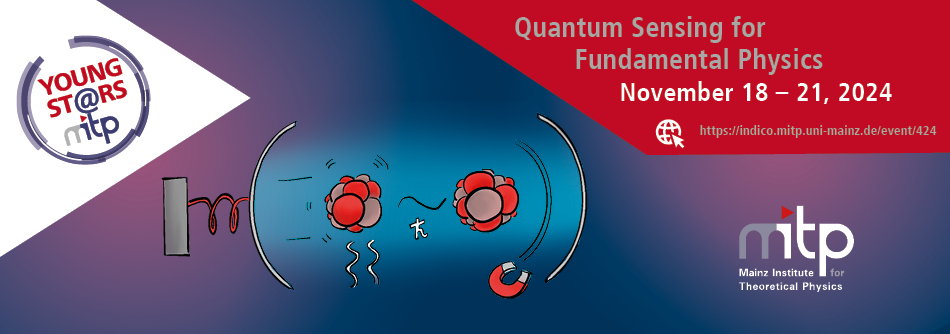This workshop will explore emerging quantum sensing technologies and promising ways in which they may be harnessed to search for weakly coupled new phenomena beyond-the-Standard Model (BSM).
Among the topics to be covered are:
- Atomic and Nuclear Clocks: Many well-motivated theories of new physics predict time-varying fundamental constants. Atomic and nuclear clocks are currently the most precise timekeeping devices available, and are therefore well-suited to probe such phenomena. We will delve into how advancements in such technologies allow for unprecedented tests of fundamental physics and offer a means to detect ultra-light dark matter.
- Exotic phases of matter for BSM searches: Exotic phases of matter including superfluids and superconductors offer a number of exciting opportunities to probe new physics. We will highlight recent experimental and theoretical advancements that utilize these unique states of matter to probe BSM phenomena.
- Atom Interferometry: Being highly sensitive to both internal energy shifts and accelerations, atom interferometers are powerful tools with which to probe fundamental physics. With several long-baseline instruments currently in development, we will cover both the present experimental status of this field in addition to its potential applications, including searching for dark matter, detecting graditational waves, and measuring fundamental constants with high precision.
- Electric Dipole Moments (EDMs): EDMs are highly sensitive indicators of new physics. We will review recent experimental searches for EDMs and their sensitivity to new physics. Future directions for improvement in next-generation searches will also be discussed.
- New Long-Range Forces: Theories with new light bosons predict the existence of feeble, macroscopic interactions with diverse and interesting phenomenology. In this session both theoretical developments and the experimental landscape will be discussed.
- High Frequency Gravitational Waves: The high frequency gravitational wave landscape above ~10kHz marks a largely unchartered frontier. We will cover recent technological advancements and experimental proposals aimed at detecting GWs in this band. Discussions will also include the potential implications of such searches for cosmology and particle physics.
- Optomechanical Sensors: Operating in the quantum regime, optomechanical sensors can detect mechanical changes such as acceleration forces, vibrations, electromagnetic signals and pressure, at the quantum noise limit. We will review their current status, gather recent proposals and discuss their potential to probe new physics scenarios.
- Precision Magnetometry: We will discuss the latest developments in magnetometry and the role it can play in BSM searches. These devices are particularly efficient in detecting subtle pseudo-magnetic effects that could indicate new physics, such as axion gradients coupled to the spin of SM particles.

